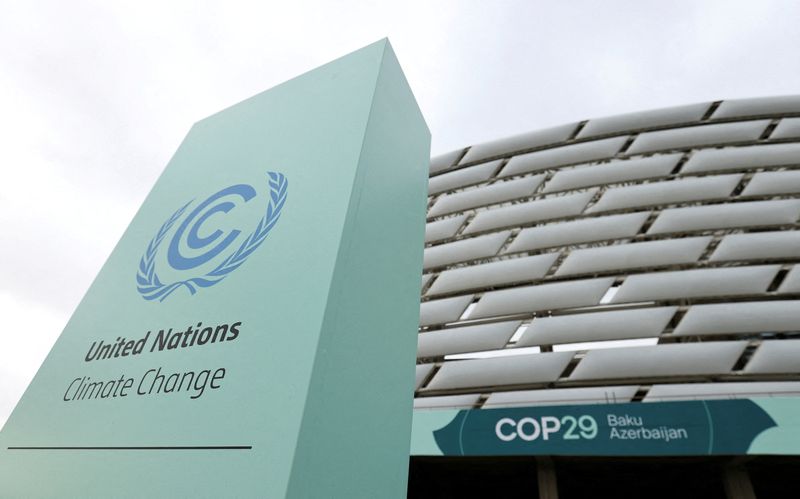
By Valerie Volcovici, Gloria Dickie
BAKU (Reuters) -The COP29 climate summit presidency released a draft finance deal on Friday that would have developed nations take the lead in providing $250 billion per year by 2035 to help poorer nations – a proposal that drew criticism from all sides.
World governments represented at the summit in the Azerbaijan capital Baku are tasked with agreeing a sweeping funding plan to tackle climate change, but the two-week conference has been marked by division between wealthy governments resisting a costly outcome and developing nations pushing for more.
“I’m so mad. It’s ridiculous. Just ridiculous,” said Juan Carlos Monterrey Gomez, the Special Representative for Climate Change for Panama, who called the proposed amount too low. “It feels that the developed world wants the planet to burn.”
A European negotiator, meanwhile, told Reuters the new draft deal was too expensive and did not do enough to expand the number of countries contributing to the funding.
“No one is comfortable with the number, because it’s high and (there is) next to nothing on increasing contributor base,” the negotiator said.
HEADING INTO OVERTIME?
The draft also set a broader goal to raise $1.3 trillion in climate finance annually by 2035, which would include funding from all public and private sources.
That is in line with a recommendation from economists that developing countries have access to at least $1 trillion annually by the end of the decade.
But filling the gap between government pledges and private ones could be tricky, negotiators have warned.
The climate summit is scheduled to wrap up in the Caspian Sea city by the end of Friday. But past COPs have traditionally run over time.
Li Shuo, director of the China Climate Hub at the Asia Society, a veteran observer of COP summits, said finding a “sweet spot” in talks soon was crucial.
“Anything other than that may require rescheduling flights.”
U.N. Secretary-General Antonio Guterres returned to Baku from a G20 meeting in Brazil on Thursday, calling for a major push to get a deal and warning that “failure is not an option”.

Daniel Lund, negotiator for Fiji, told Reuters there was a long way to go.
“It is a very low number in relation to the available evidence on the scale of the need that exists and understanding of how those needs will evolve,” he said.
This post is originally published on INVESTING.


